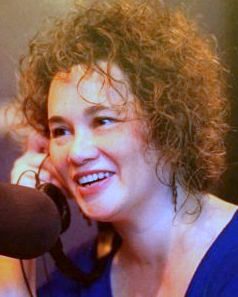|
VOICE ACTING If Your Regional Accent Limits Voice-Over Opportunities, Learn 'General American English'  By Monique Bagwell By Monique BagwellVoice Actor & GAE Coach This past March I had the pleasure of presenting a workshop
on General American English (GAE) at the VOAtlanta Voiceover Conference. My purpose was to help fellow voice-over
actors understand what GAE was, it's benefits, and how to learn it. WHAT IS GAE? General American English has also been referred to as
"Standard American" or "Neutral English." Basically, it is reducing any regionalism or foreign accent so the
listener has a difficult time identifying where you are from. According to an online article, Do You Speak
American, by John Fought, 'neutral' American speech came about when
"national radio networks came into being." They were based on the speech of "Inland Northeast." If you want to hear what GAE sounds like, then
tune into a news station. The majority
of the anchors speak GAE, with the exception of the weather or sports anchor,
who often retain a local flavor to their speech. EXPANDS VO OPPORTUNITIES While all natural accents are to be embraced and respected,
as they are at the root of our individual culture, they sometimes can interfere
with communication in various occupations. As professionals in a field that
relies on our voices and our ability to communicate a message, it is important
that there is nothing to obstruct us from doing so as clearly as possible to an
audience. Oprah, Stephen Colbert and F. Murray Abraham are examples of top
performers in their fields who knew this to be true and learned how to speak
with a General American English accent to further their careers. Like any other performance tool, learning GAE can be of
great value to the voice actor. Here
are just a few of the benefits:
HOW TO LEARN IT We all have different learning styles, which is why it is
important for you to find the right training method or coach that works best
for you. Depending on how quickly you
grasp the information, you can expect to invest anywhere from one to six months of
training before you begin to apply GAE naturally and comfortably into your work
or everyday speech pattern. The more you
apply these principles, the quicker you will learn them. As I tell my students,
when your closest friends and relatives start remarking that there is something
different about you, then you know you have been applying it.
The teaching approach I have used for nearly 30 years is
based on my training in GAE as an MFA student at The Ohio State University,
with additional methods from various respected professional speech teachers. In particular, I have incorporated the following
methods used by Dr. David Allen Stern in The
Sound and Style of American English, to my own teaching style of GAE
because the training is very holistic:
Each of these steps helps you understand the underlying
differences that makes GAE different from all other forms of English. PUT A CORK IN IT!
 For an immediate sense of how resonance can alter the quality
of your voice and reduce your regionalism, follow this simple exercise: For an immediate sense of how resonance can alter the quality
of your voice and reduce your regionalism, follow this simple exercise:
If done correctly, you should hear
and feel a greater sense of freedom, a richer tone in your voice, and even a
reduction in your regionalism.
-------------------------- ABOUT MONIQUE
Monique
Bagwell is a full-time professor in the Mass Communication and Media Studies
department at Lander University. She
earned her MFA in Performance from The Ohio State University and her BFA in
Performance from Brooklyn College. When
she isn't teaching, performing, directing, or working on her own voice-over
projects, she offers private coaching sessions in General American
English. Email: moniquebagwellvo@outlook.com |
Tell Us What YOU Think!
Please Note: Since we check for spam, there will be a slight delay in the actual posting of your comment.
Comments (1)
Rob Carbone
3/2/2020 at 10:20 AM
I had the great opportunity to work with Monique and she is the best, really helped this Long Island boy who spent most of his youth sounding like a member of the Sopranos to clean up his Northeast accent. And the cork thing works like magic.




.png)





click for new article alerts